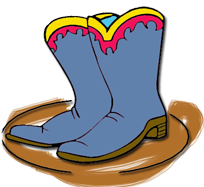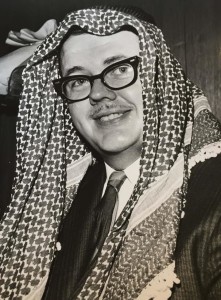
Bob Gassaway was a journalist for more than 20 years. After earning a Ph.D. in sociology, focusing on human communication, he began teaching journalism and conducting research as a sociologist. He is co-editor of a non-fiction book called Dirty Work and later in life wrote murder mysteries, drawing on many memories of crime scenes.
After a long illness, Bob passed away in May. A SWW member and board member, many of us remember him as soft spoken and unfailingly polite, always noticing the efforts of others and encouraging positive interactions. Before the SWW Memoir Conference in 2015, Bob wrote the following article, and in doing so exposed many of his own experiences and memories for us to enjoy.
The Many Faces of Memoir
The memoir is a curious kind of writing. It has many faces because it has a different style and tells a different story for every person who creates one.
Bookstores tend to lump biographies and memoirs together, but they actually are very different beasts. A biography tells the story of a person’s life from childhood up until the time the story is written. But a memoir is a narrower take on a person’s life-just a segment of the life that the writer deems interesting and worth recounting.
One writing teacher uses a kitchen metaphor to distinguish between them. She says a biography is the whole pie. But a memoir is a slice of the pie. It should be an interesting slice with characters and probably conflict that will hold the reader’s attention, but it’s just a piece of the life, covering a particular time period in the writer’s life.
One thing is clear: Biographies and memoirs are shelved in the nonfiction section of the bookstore. Indeed, the memoir is expected to be a true account. If you plan to write fiction, write a novel, not a memoir.
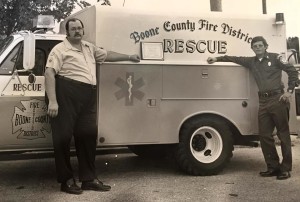 Nonetheless, the writer can take some reasonable liberties with a memoir. Memoir, after all, derives from a French word meaning memory. So you’re drawing on your memories when you write a memoir. Yet many memoirs reproduce conversations of years gone by. Are they verbatim transcriptions that the writer is reproducing? Not likely. The reader should understand that the writer has reconstructed the events as he or she remembers them. In fact, a note early in the book might remind the reader that the writer is depending on memories to tell the story.
Nonetheless, the writer can take some reasonable liberties with a memoir. Memoir, after all, derives from a French word meaning memory. So you’re drawing on your memories when you write a memoir. Yet many memoirs reproduce conversations of years gone by. Are they verbatim transcriptions that the writer is reproducing? Not likely. The reader should understand that the writer has reconstructed the events as he or she remembers them. In fact, a note early in the book might remind the reader that the writer is depending on memories to tell the story.
One of my friends, Fred Bales, has used a variety of approaches to telling stories from various parts of his life. He published one book, mostly for friends and family, using the letters he and his wife, Jan, wrote to their parents when Fred and Jan were serving in the Peace Corps in Chile.
In another project, Fred created a novella based on boyhood memories of a scandalous sex triangle in his hometown. He also produced a short nonfiction book on his experiences during an attempted coup in the Philippines. He was in Manila as a Fulbright lecturer, teaching at two universities, when some members of the Filipino military tried to overthrow then-President Corazon Aquino in December of 1989. Fred holed up in his small apartment, but often could hear gunfire not far away.
Bright journalist that he was, he cranked paper into his typewriter and began keeping a log of his daily life, describing what he could see and hear, plus what he learned about the attempted coup d’état from television news and from people at the U.S. embassy. Last year, when he decided to write about his coup experiences, that log provided the facts he needed.
He used memories in a more traditional approach to memoir to produce an account of his work as a volunteer for a homeless shelter in Albuquerque. The residents in the shelter are men with medical problems, some of them quite serious.
That book, called Our Sheltered Lives, actually sort of sneaked up on Fred. He had been volunteering at the shelter for about three years, he says, when he decided that he could write a book about his experiences. At that point he began making some notes after each day of volunteer work to describe his more interesting experiences.
In the book, Fred recounts conversations with the men as he drove them to medical appointments and on errands around town. He disguised the identities of the men to protect their privacy.
Fred is a former journalist and a retired journalism professor who taught at the University of New Mexico (UNM). After he retired from UNM, he taught for several years in New Orleans and later in Brownsville, Texas, before he returned to Albuquerque to settle down and start writing.
“I think everybody ought to have something to look forward to, and for writers, that is writing,” he says. “I do if for my own self. It has its own rewards. I’m not in it for the money.” (But he does have four books for sale on Amazon.com)
Jim Tritten, a member of the board of directors of SouthWest Writers, is a retired Navy pilot and draws on those experiences in some of his writing. He has 3,345 hours of pilot time in 24 military airplane types to his credit. And he has made 320 landings on nine aircraft carriers-one of the most difficult things a naval aviator will ever do.
A modern aircraft carrier is a huge ship when you go aboard one or see it tied up at a dock. But it looks like little more than 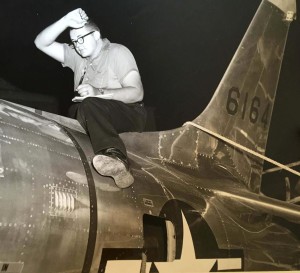 a speck in the ocean when you are flying thousands of feet above it and planning to land on the flight deck below. The carrier is not parked at sea when a pilot is trying to land. The ship is underway, rolling and pitching with the waves and the actions of the sea, plus it is steaming into the wind to grant the airplane extra lift as it makes its precarious landing.
a speck in the ocean when you are flying thousands of feet above it and planning to land on the flight deck below. The carrier is not parked at sea when a pilot is trying to land. The ship is underway, rolling and pitching with the waves and the actions of the sea, plus it is steaming into the wind to grant the airplane extra lift as it makes its precarious landing.
If you are able to touch down on this moving target, a tailhook under the plane is supposed to grab a steel cable strung across the deck. An aircraft traveling 120 miles an hour is jerked to a stop in just two seconds.
Jim has penned a few short nonfiction stories about his years of flying, the close calls, the tall tales the pilots tell each other, his visits to foreign ports and his other adventures. And he has written a novel, not yet published, that includes a fictional chapter that is based on a real-life crash that Jim experienced firsthand.
But we all have stories that will interest others. For instance, I spent a year in Vietnam as a war correspondent for The Associated Press. (Actually it was one year, two weeks, five hours and 18 minutes-but who’s keeping track?) I spent most of my time with the U.S. Marines in the northern part of South Vietnam-and I made a very large target at 6-foot-4 and 300 pounds. I’ve started writing a book about covering the war.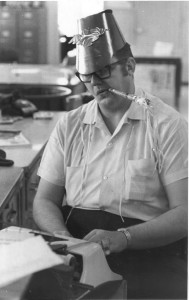
Beyond that, I’ve been a journalist, a firefighter, a paramedic, and a sociologist. Along the way, I’ve been to dozens of murder scenes. Now my primary writing interest is mystery novels based on what I’ve learned about the work of crime scene investigators.
Naturally you don’t have to go to a war or make a habit of landing on aircraft carriers or see lots of dead people or work with the homeless to have an interesting tale. The trick is to pick out the pieces of your life that are the most interesting and find a narrative structure that you can use to knit those together into an intriguing story. And that makes a memoir.
With some thought and effort, you can turn your story into a memoir that your family will cherish-and it might just find a publisher who will spread the word far and wide.
Thank you, Bob, for your wisdom, your friendship and the sense of adventure you gave in everything your wrote.
 The New Mexico State Poetry Society is scrutinizing our Free Verse, Limerick and Haiku categories. Shirley Blackwell, current Chancellor of the group, is coordinating the efforts of experts in each of those categories. NMSPS was founded in 1969. They are a non-profit poetry organization affiliated with the National Federation of State Poetry Societies, Inc. (NFSPS). Their mission is to promote the creation and appreciation of poetry throughout New Mexico. “We are a diverse and inclusive community of poetry aficionados whose collective purpose is literary and educational, with a good dose of fun thrown in.”
The New Mexico State Poetry Society is scrutinizing our Free Verse, Limerick and Haiku categories. Shirley Blackwell, current Chancellor of the group, is coordinating the efforts of experts in each of those categories. NMSPS was founded in 1969. They are a non-profit poetry organization affiliated with the National Federation of State Poetry Societies, Inc. (NFSPS). Their mission is to promote the creation and appreciation of poetry throughout New Mexico. “We are a diverse and inclusive community of poetry aficionados whose collective purpose is literary and educational, with a good dose of fun thrown in.” produce quality stories for young people. Their local chapter here in New Mexico is an excellent resource for new authors. Award winning author, Chris Eboch, has spoken for SWW on several occasions, and is coordinating the organizations participation with our writing contest.
produce quality stories for young people. Their local chapter here in New Mexico is an excellent resource for new authors. Award winning author, Chris Eboch, has spoken for SWW on several occasions, and is coordinating the organizations participation with our writing contest.
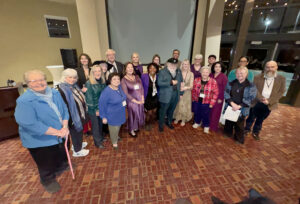
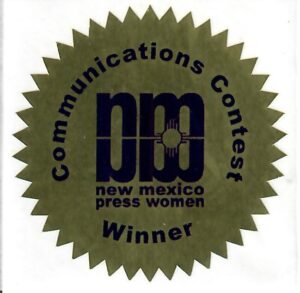
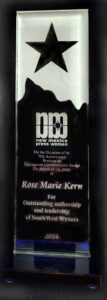
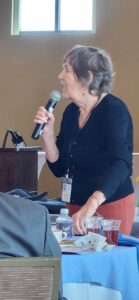
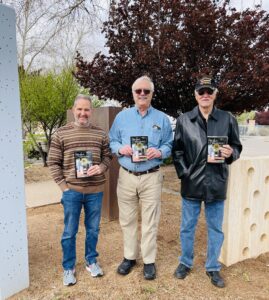
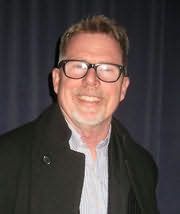

 Nonetheless, the writer can take some reasonable liberties with a memoir. Memoir, after all, derives from a French word meaning memory. So you’re drawing on your memories when you write a memoir. Yet many memoirs reproduce conversations of years gone by. Are they verbatim transcriptions that the writer is reproducing? Not likely. The reader should understand that the writer has reconstructed the events as he or she remembers them. In fact, a note early in the book might remind the reader that the writer is depending on memories to tell the story.
Nonetheless, the writer can take some reasonable liberties with a memoir. Memoir, after all, derives from a French word meaning memory. So you’re drawing on your memories when you write a memoir. Yet many memoirs reproduce conversations of years gone by. Are they verbatim transcriptions that the writer is reproducing? Not likely. The reader should understand that the writer has reconstructed the events as he or she remembers them. In fact, a note early in the book might remind the reader that the writer is depending on memories to tell the story. a speck in the ocean when you are flying thousands of feet above it and planning to land on the flight deck below. The carrier is not parked at sea when a pilot is trying to land. The ship is underway, rolling and pitching with the waves and the actions of the sea, plus it is steaming into the wind to grant the airplane extra lift as it makes its precarious landing.
a speck in the ocean when you are flying thousands of feet above it and planning to land on the flight deck below. The carrier is not parked at sea when a pilot is trying to land. The ship is underway, rolling and pitching with the waves and the actions of the sea, plus it is steaming into the wind to grant the airplane extra lift as it makes its precarious landing.
